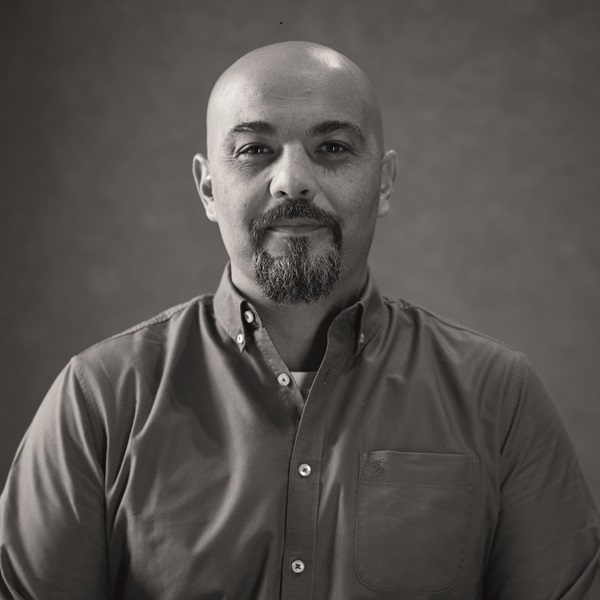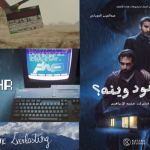Katara Studios recently launched its second Arabic co-production, 'Chasing Dreams', on MBC Group’s streaming platform Shahid. Hussein Fakhri, Chief Commercial Officer and Executive Producer at Katara Studios, talks to BroadcastPro ME about the creative process and challenges faced during the show’s development, highlighting the company’s role in the series.
Chasing Dreams is a compelling docu-series that follows the journey of five young Arab refugees from Al Zaatari camp in Jordan as they aspire to become professional football players in Brazil. Directed and created by acclaimed filmmaker Bassel Ghandour, known for his Oscar-nominated work on Theeb, and Executive Producer Hashem Sabbagh, the series features top-notch production from Katara Studios with all-round support from Generation Amazing (GA), a Qatari entity that focuses on empowering underserved youth worldwide through football.
“The concept was brought to us by Generation Amazing, who wanted to tell this powerful story of survival through football,” explains Fakhri. “Football has an incredible ability to unite people, and Bayt Al Shawareb [a TV and media production house in Amman] had started this journey to use the sport to highlight the struggles and resilience of a group of boys in a refugee camp. Katara Studios fell in love with it, and we jumped aboard as a co-producer because the project perfectly aligned with our mission to tell meaningful stories that resonate globally, while showcasing the humanity of our region.”

He goes on: “Our goal was to highlight the journey of these boys. The project shed light on the refugee crisis while highlighting how football can be a powerful force for good.” He points out the relevance of their stories against the backdrop of Qatar hosting the World Cup for the first time, adding depth and significance to the narrative. “Having the boys in Qatar during the World Cup was an amazing experience for them and us.”
A particularly touching moment involved a meeting with football legend David Beckham, who spent time with the boys. “Those moments are woven into the final cut, showcasing their joy and aspirations.” During post-production, the team was deeply moved by the emotional depth of the scenes, reminding them of the importance of telling such a heartfelt story.

To ensure the boys’ stories were portrayed authentically, Fakhri highlights the importance of collaboration. “It was crucial to align with Generation Amazing and Bayt Al Shawareb. Executive Producer Hashem Sabbagh spent significant time with the boys, always ensuring their stories were treated with dignity and respect. This careful attention to authenticity allowed the series to focus on their resilience rather than sensationalising their struggles.”
Fakhri’s own journey to his current role is noteworthy. He began his career in digital marketing and advertising technology, with early experiences in Ireland shaping his strategic approach. After working at Qatar Airways as Marketing Manager and taking on leadership roles in the banking sector, he founded successful businesses in advertising and film production in Doha. Joining Katara Studios in 2018, he now focuses on driving growth and innovation in the entertainment industry, a mission that aligns perfectly with the vision behind Chasing Dreams.
The production process was not without its challenges. Fakhri candidly discusses the obstacles faced, particularly during the pandemic. “The nature of unscripted documentary filmmaking meant we had to adapt quickly to unexpected situations,” he shares, acknowledging difficulties with training schedules and securing visas for certain countries. Despite these challenges, the team maintained a focus on capturing the boys’ journeys with emotional depth, balancing their struggles with moments of hope and triumph.
 Looking forward, Fakhri expresses hope that audiences will find inspiration in the series. “This is a story about hope, perseverance and the power of sport to bring people together, shedding light on the human aspect of the refugee crisis,” he says.
Looking forward, Fakhri expresses hope that audiences will find inspiration in the series. “This is a story about hope, perseverance and the power of sport to bring people together, shedding light on the human aspect of the refugee crisis,” he says.
While specific viewership data is still being compiled, he remarks on the overwhelmingly positive feedback received so far, indicating that Chasing Dreams has resonated deeply with viewers, particularly for its authentic portrayal of the boys’ journeys.
Reflecting on lessons learned, Fakhri emphasises the importance of agility in documentary filmmaking. “One of the key lessons we learned is the importance of flexibility and trust. When dealing with real-life stories, things often don’t go as planned, and it’s crucial to adapt quickly.” He believes that building trust with the people whose stories are being told is essential to capturing authentic content.
 In the broader context of Arabic content production, Fakhri sees a growing trend toward authentic storytelling that challenges stereotypes. “There is a growing trend toward telling more authentic and diverse stories from the Arab world. We’re witnessing more pan-Arab collaborations and projects that blend genres. Additionally, we’re seeing an increase in premium content from the region, with higher production values and more ambitious storytelling. The international appetite for Arabic stories is growing, and it’s an exciting time to be part of the industry.”
In the broader context of Arabic content production, Fakhri sees a growing trend toward authentic storytelling that challenges stereotypes. “There is a growing trend toward telling more authentic and diverse stories from the Arab world. We’re witnessing more pan-Arab collaborations and projects that blend genres. Additionally, we’re seeing an increase in premium content from the region, with higher production values and more ambitious storytelling. The international appetite for Arabic stories is growing, and it’s an exciting time to be part of the industry.”
He acknowledges that funding can be a challenge, but equally important is “finding the balance between staying true to our cultural roots and making content that appeals to a global audience … There is also the issue of navigating cultural sensitivities while challenging stereotypes. However, we are seeing a positive shift with more international interest in stories from the Arab world, and studios like Katara are at the forefront of this change.”
Ultimately, Chasing Dreams not only tells the inspiring stories of five boys but also embodies the hope and resilience that sport can inspire, resonating deeply with audiences around the world.
“Football serves as a narrative vehicle that not only engages viewers but also provides moments of lightness and joy. It was important for us to show the triumphs of these boys as well as their struggles, ensuring a dynamic yet respectful portrayal,” Fakhri concludes.












































































